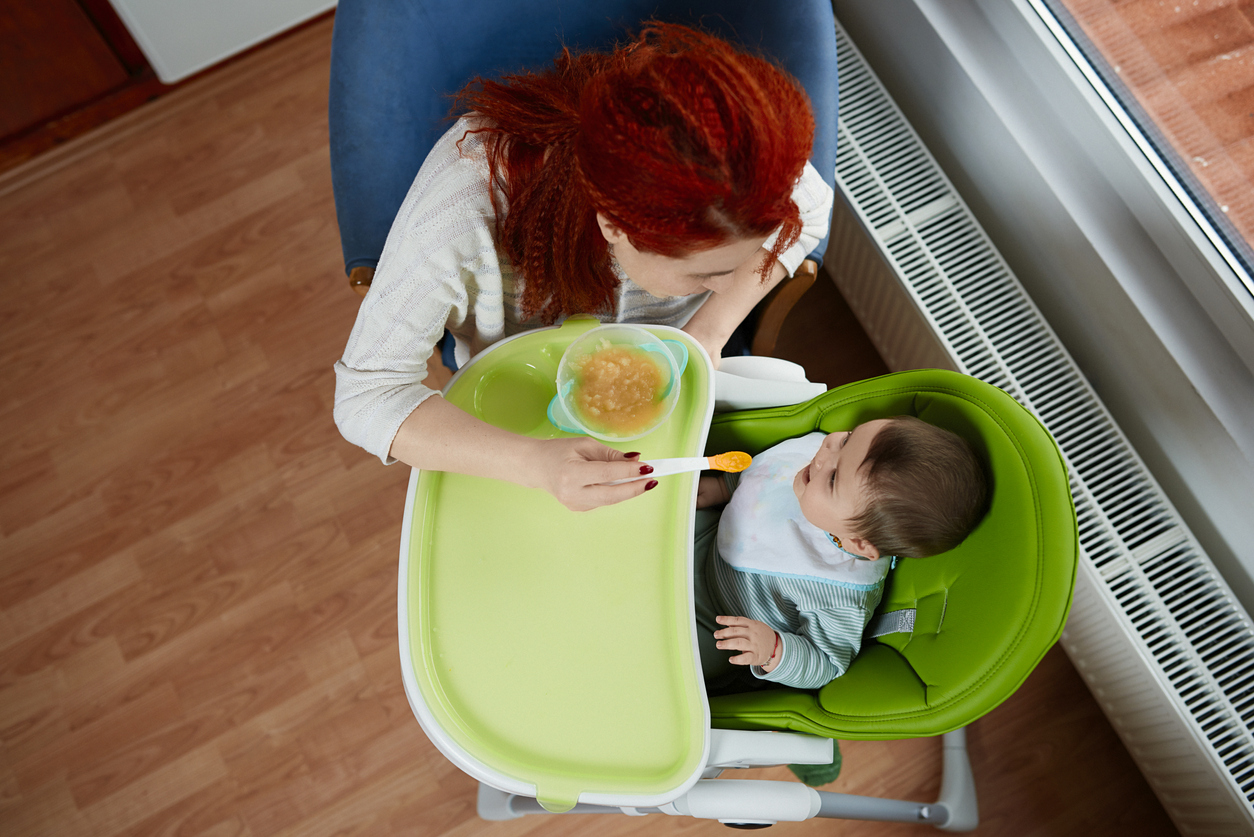Is Karo Syrup Safe for Babies? Why This Constipation Cure Can Be Toxic

Years ago, people used to suggest using Karo syrup for babies’ constipation. New evidence shows that using dark corn syrup for infant constipation is a bad idea.
However, there are other home remedies that you can safely use to treat your baby’s constipation.
What is Infant Constipation?
Constipation is when your baby isn’t passing stools as often as they should, or when their bowel movements are hard and difficult to pass.
How Often Should Babies Poop?
Babies below six weeks of age typically pass stool two to five times a day (Villines, 2019).
Older babies (from six weeks to three months of age) may poop between once a day and once a week.
One recent study (den Hertog et al I, 2020) found that breastfeeding infants pooped more often than formula-fed babies at every stage.
It pays to become familiar with your baby’s elimination schedule. Also, keep an eye open for straining, abdominal pain, and discomfort.
Why Do Babies Become Constipated?

Dietary changes are a common cause of constipation.
Constipation often happens when babies transition from breast milk or formula to solid foods, for example. Cow’s milk can cause hard stools in children at any age (Connor et ali, 2022).
Constipation can also be a sign that a baby isn’t getting enough to eat.
According to the American Academy of Pediatrics (AAP), constipation can, on rare occasions, be a sign of another underlying condition (LeLeiko et ali, 2020). If you’re concerned, it’s important to speak with your pediatrician.
Does Karo Syrup Work for Infant Constipation?
Years ago, some people recommended using Karo syrup for constipation because the sugars and proteins in the syrup would lock moisture into the stool, making the stool easier to pass.
However, today’s corn syrup is structurally different. Not only is it ineffective for treating constipation, but using it this way has some risks.
Is Karo Syrup Safe for Babies?
The short answer is no. There are several risks to giving a baby or young toddler Karo syrup or corn syrup.
Risks of Using Karo Syrup for Constipation
There are two main risks involved in giving Karo syrup to infants.
First, it’s not sterile. Giving it to infants carries the risk of bacteria, including Clostridium botulinum (C. botulinum), which can cause botulism.
Also, its high sugar content means that it can cause cavities in developing teeth.
Safe Home Remedies to Treat Constipation in Infants

The Cumming Pediatric Group recommends a few home remedies to treat constipation in babies and toddlers.
Water
In addition to feedings, offer your baby two to four ounces (about 60 to 120 milliliters) of water to drink once a day. This can help to soften stool so that it can pass.
Fruit Juice
If water isn’t doing the trick, try adding the same amount of apple, prune, or pear juice to your baby’s diet: two to four ounces (60 to 120 milliliters) once a day.
Fruit juice has water, fructose, and a small amount of fiber, all of which can help to soften stool and move it along.
Make sure, however, to use one hundred percent fruit juice, and not fruit punch or fruit “drink.” These can be loaded with added sugar and even artificial sweeteners. Moreover, they do not contain fiber. Many also don’t contain fructose. When in doubt, check the label.
Baby Food
If your baby is eating solid foods, certain kinds of baby food can help. Pureed pears and prunes have fiber, which can help to get things moving. Also, try barley cereal instead of rice cereal, also for the higher fiber content.
Lubrication
Applying a water-based lubricant to your baby’s anus can help to move things along. Do not use mineral oil, laxatives, or enemas.
Infant Glycerin Suppository
Infant glycerin suppositories are available from a pharmacy. You won’t need a prescription. Follow the manufacturer’s instructions.
When to See Your Pediatrician About Constipation
If home remedies fail to solve your baby’s constipation, your healthcare provider may prescribe medication.
Seek medical advice immediately if your constipated infant seems irritable, appears to have abdominal pain, passes blood or pus in their stool, or passes black poop.
Diarrhea can be even more serious than constipation. Contact your doctor if your baby has:
- Diarrhea lasting more than 24 hours
- A fever of 102 degrees Fahrenheit (38.8 degrees Celsius) or above
- Signs of dehydration
- Irritability
- Sleepiness
- Sunken cheeks or eyes
- A dip in the soft spot on top of the head
Your Baby's Health is in Your Hands
Our babies can’t tell us when something’s wrong. That’s why it’s important to be observant, and, when there are concerns, to seek medical advice.
Is your little one done with the diaper? Read about the signs of potty training readiness to find out!

